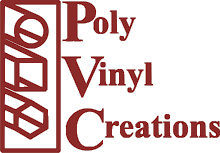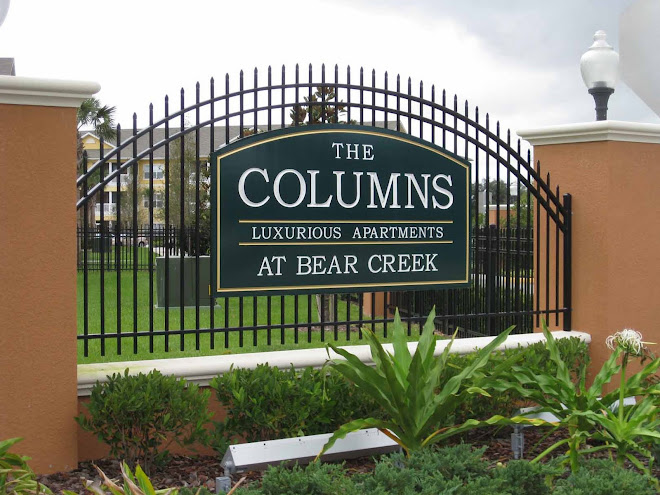High Point Economic Development Corporation
P.O. 230
High Point, NC 27261 USA
336.883.3116 / Fax: 336.883.3057
www.highpointedc.com
For immediate release: July 15, 2010
For more info, contact:
· Bob Burton, president, Poly Vinyl Creations, 336-431-7659 or 727-423-8984
· Jessica Burton, vice president of sales and marketing, Poly Vinyl Creations, 336-431-7659 or 813-545-2199
· Loren Hill, president, High Point Economic Development Corp., 336-883-3116
Poly Vinyl Creations opens
High Point manufacturing / distribution facility
HIGH POINT, NC – Poly Vinyl Creations has opened a manufacturing / distribution facility at 921 Inlet Ave. in southern High Point.
The family owned-and-operated company fabricates extruded vinyl, aluminum, and steel products for use outdoors – for fencing, decking, railing, arbors, trellises, and garden products.
Bob Burton, president and chief executive officer of Poly Vinyl Creations, Inc., said, “We chose to open a location in High Point to service our customers in North Carolina, Virginia, and Tennessee in a more timely fashion. Our new location allows just-in-time inventory, custom fabrication, and a local location for pick-ups and deliveries. We have been building relationships in these three states for two years, and now that we have a base we feel it is the right time to open in this market.”
Poly Vinyl Creations recently purchased the 30,000-square foot building, which sits on a 3.5-acre site. The company has hired three employees initially at its new High Point location. As the company ramps up its operations, it could create up to 20 additional jobs over the next several years.
“We are honored that Poly Vinyl Creations chose High Point for its new facility,” said Loren Hill, president of the High Point Economic Development Corp. “The company prides itself on its high level of integrity, quality of products, and exceptional customer service. We warmly welcome them to the High Point business community.”
# # #
ABOUT THE COMPANY
· Poly Vinyl Creations (http://www.polyvinylc.com/), founded in 1996, is the Southeast's leading wholesale manufacturer and distributor of specialty vinyl, steel, and aluminum outdoor products.
· The company is based in Hudson, FL. It has a location in Byron, GA, in addition to the new High Point facility.
· Mission statement: “Our mission is to serve the specialty outdoor products market through our dealer network by providing consumers with a wide range of quality products including fencing, decking, railing and garden accessories. We are dedicated to growing the vinyl & ornamental industry and meeting your customer's individual needs and wants.”
P.O. 230
High Point, NC 27261 USA
336.883.3116 / Fax: 336.883.3057
www.highpointedc.com
For immediate release: July 15, 2010
For more info, contact:
· Bob Burton, president, Poly Vinyl Creations, 336-431-7659 or 727-423-8984
· Jessica Burton, vice president of sales and marketing, Poly Vinyl Creations, 336-431-7659 or 813-545-2199
· Loren Hill, president, High Point Economic Development Corp., 336-883-3116
Poly Vinyl Creations opens
High Point manufacturing / distribution facility
HIGH POINT, NC – Poly Vinyl Creations has opened a manufacturing / distribution facility at 921 Inlet Ave. in southern High Point.
The family owned-and-operated company fabricates extruded vinyl, aluminum, and steel products for use outdoors – for fencing, decking, railing, arbors, trellises, and garden products.
Bob Burton, president and chief executive officer of Poly Vinyl Creations, Inc., said, “We chose to open a location in High Point to service our customers in North Carolina, Virginia, and Tennessee in a more timely fashion. Our new location allows just-in-time inventory, custom fabrication, and a local location for pick-ups and deliveries. We have been building relationships in these three states for two years, and now that we have a base we feel it is the right time to open in this market.”
Poly Vinyl Creations recently purchased the 30,000-square foot building, which sits on a 3.5-acre site. The company has hired three employees initially at its new High Point location. As the company ramps up its operations, it could create up to 20 additional jobs over the next several years.
“We are honored that Poly Vinyl Creations chose High Point for its new facility,” said Loren Hill, president of the High Point Economic Development Corp. “The company prides itself on its high level of integrity, quality of products, and exceptional customer service. We warmly welcome them to the High Point business community.”
# # #
ABOUT THE COMPANY
· Poly Vinyl Creations (http://www.polyvinylc.com/), founded in 1996, is the Southeast's leading wholesale manufacturer and distributor of specialty vinyl, steel, and aluminum outdoor products.
· The company is based in Hudson, FL. It has a location in Byron, GA, in addition to the new High Point facility.
· Mission statement: “Our mission is to serve the specialty outdoor products market through our dealer network by providing consumers with a wide range of quality products including fencing, decking, railing and garden accessories. We are dedicated to growing the vinyl & ornamental industry and meeting your customer's individual needs and wants.”












